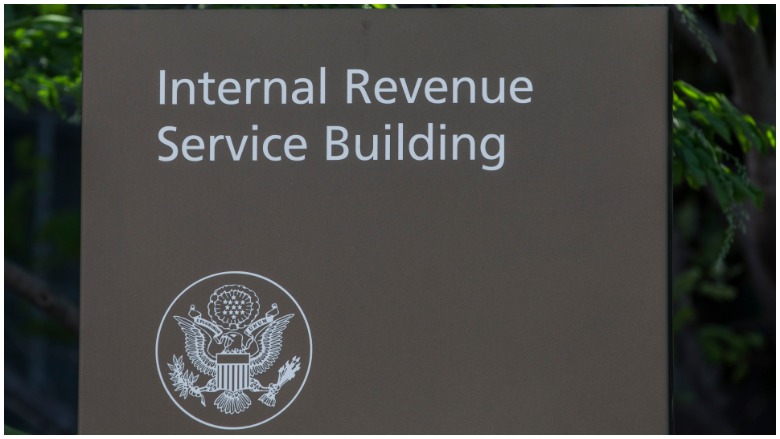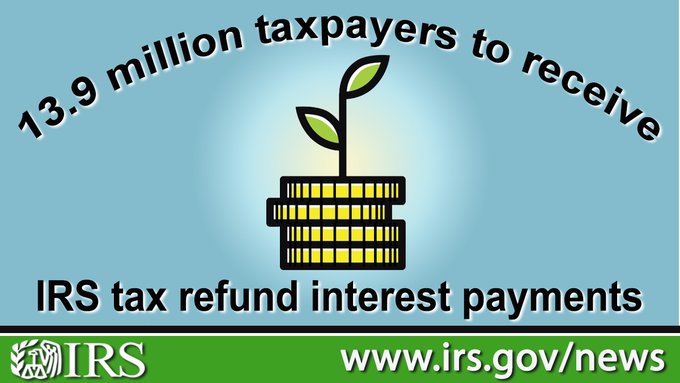
The IRS announced on August 18 that it would be providing interest payments to individuals who filed their 2019 federal income tax returns by July 15, 2020 and are expecting – or have already received – a refund.
The IRS has faced many challenges due to old-fashioned documentation methods, lagging technological infrastructure and the challenges of working from home with people’s sensitive information. The interest payments are part of the IRS’ response to coronavirus-related delays.
Here is what you need to know:
Interest Payments Are Not Expected to Be That Large
The average interest payment is expected to be about $18, the IRS said in a memo announcing the interest refund payments. However, that average was based on the average tax refund, which Forbes reported as being roughly $2,741.
According to the IRS, the interest rate between April 15 and June 30 was at a daily-compounding 5%, and the interest rate beginning July 1 was at a daily-compounding 3%.
The IRS said that about 12 million people who received their refund via direct deposit will receive the interest in the same way. All checks and payments issued are supposed to be marked with an “INT amount” to distinguish them from tax return refunds.
If you do receive one of these interest checks, it is important that you realize you may have to report the interest payment on your 2020 federal income tax return; everyone who receives $10 or more in interest will need to fill out a Form 1099-INT, which the IRS will begin mailing in January of 2021.
Interest Payments Are Being Made Because of Coronavirus-Related Delays
The IRS is issuing these interest payments because the coronavirus pandemic caused what is referred to as a “disaster-related postponement” of the filing deadline. By law, the IRS is required to pay interest when these types of postponements take place.
According to Forbes, the IRS was running 11% behind on issuing direct deposited federal tax refunds in early may and still behind nearly 5% on July 24.
Interest and refund checks are expected to be sent out separately, the IRS has said.
The interest checks do not apply to businesses, those who received their tax returns before the original April 15 filing deadline and those who filed their tax returns after the extended July 15 deadline, according to the IRS.
To check on the status of your refund, you can use the IRS Where’s My Refund? tool, which is updated once every 24 hours. The tool requires you to enter your social security number, filing status and exact refund amount.
Coronavirus Compounded Existing Issues Within the IRS
The interest payments may be welcome news for at least some taxpayers who have been dealing with long delays associated with their tax refunds. According to the Washington Post, those delays at the IRS are partly due to pandemic precautions and inexperience at telework, as well as decades of lagging technology and budget cuts.
The Post provided grim insight into one issue that has been contributing to the IRS’ inefficiency: an over-reliance on paper documents:
A workforce that sorts mail by hand and conducts some business by fax has been left in the thick of tax season with millions of pieces of untouched correspondence piled into 53-foot trailers at nearby postal processing centers.
Paper transactions are still a backbone of IRS operations. Mail must be opened and scanned. Returns must be sorted, coded, edited and numbered. Return data must be entered into computers. Valid transactions must be posted to a master file that dates to the early 1960s. Refunds or balance-due notices must be issued to taxpayers. Paper returns must be retired to federal record centers.
All of this is manual work. Most of it isn’t getting done.
In addition, the IRS has also been tasked with distributing economic impact payments, increasing the burden on employees and adding to confusion among Americans.
“Some clients haven’t received refunds yet, but they did receive stimulus payments,” Nayo Carter-Gray, an enrolled agent at 1st Step Accounting, told CNBC. “In the midst of the IRS shutting down and teleworking, there’s kind of a gap there.”
Many Americans have been frustrated and angry by the long delays as well as the hours-long hold times over the phone to reach someone at the IRS about their tax returns.
Even Minnesota Senator Amy Klobuchar noted as recently as August 14 that many Minnesotans who filed paper tax returns have yet to receive their tax refunds.
Some good news? Those who sent the IRS checks won’t face bad check penalties if their checks were left to languish in an IRS mailroom and never processed.
“To provide fair and equitable treatment, the IRS is providing relief from bad check penalties for dishonored checks the agency received between March 1 and July 15 due to delays in this IRS processing. However, interest and penalties may still apply,” the IRS website states.
READ NEXT: Who’s Distributing Up To $400 Extra In Unemployment Benefits? FEMA


